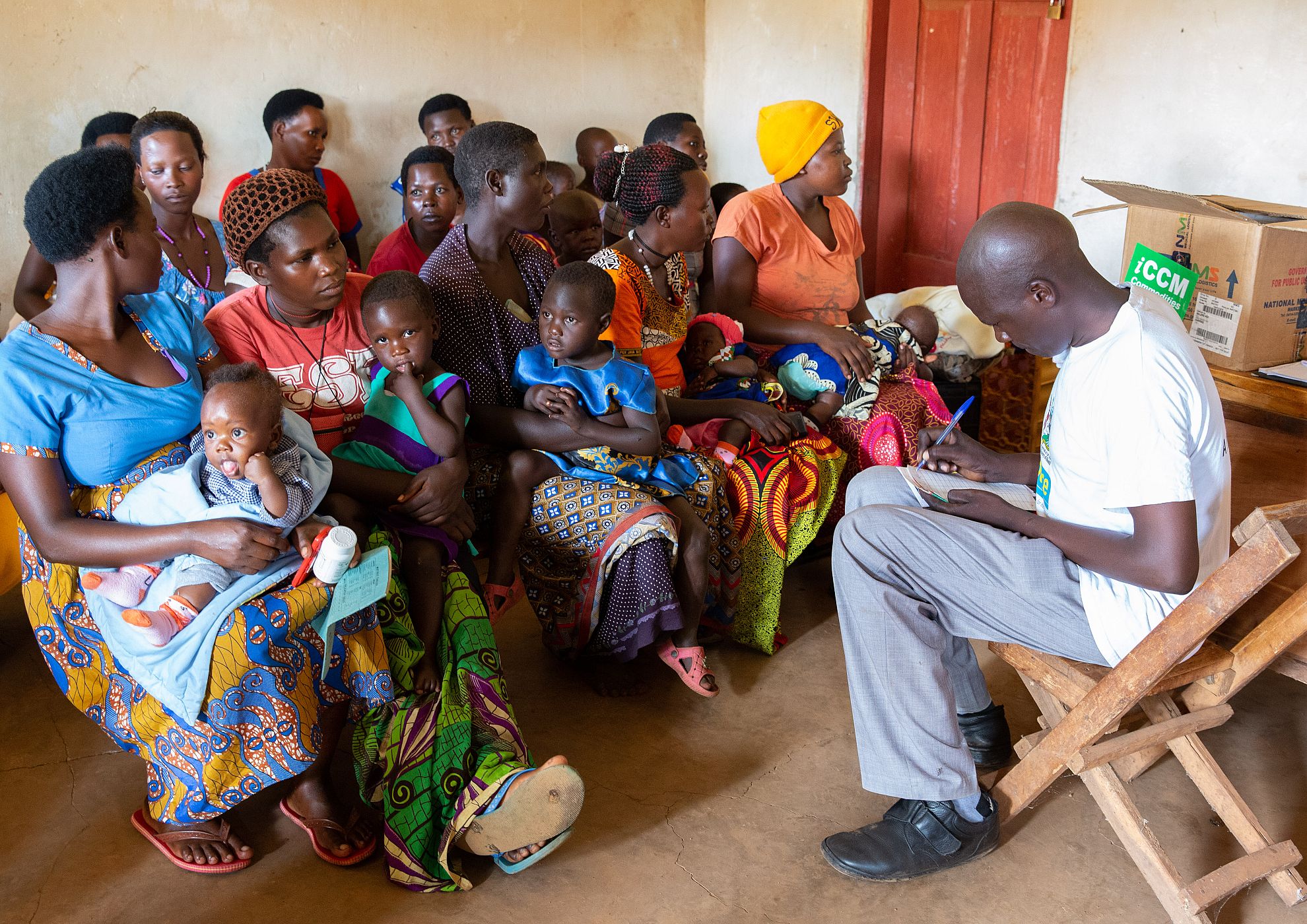
Integrated Community Case Management (iCCM) and COVID-19
11 May 2020Protecting the world's most vulnerable people is crucial during the COVID-19 pandemic. The delivery of life saving health services must not be interrupted however, especially at community level, if we are to avoid an increase in deaths from other diseases, such as malaria.
Integrated community case management (iCCM) is the provision of first-line health care in lower and middle income countries by trained community based health workers (CHWs). Their focus is usually on the diseases which are the main killers of children under five years - malaria, pneumonia and diarrhoea, and acute malnutrition. In young children, these diseases can take hold very quickly and as for many more remote communities, the difficulty in accessing a functional health facility can literally mean the difference between life and death.
Through our community based health care projects, Malaria Consortium supports the delivery of life-saving care to hard-to-reach communities in many countries, including in Mozambique, Nigeria (projects across Kebbi and Niger States), South Sudan and Uganda (SURMa and iCCM MaCS).
We are working rapidly and efficiently with our project teams and governments in these countries, as well as with global and national partners, to ensure that our community-based work is able to continue while also being adapted to support the efforts to control COVID-19 and protect those who are having to work in public spaces.
Malaria Consortium’s position
Malaria Consortium is closely following a series of guidelines published by the World Health Organization (WHO), as well as the recently published WHO/Unicef guidance on adapting community health service delivery in the context of COVID-19. In response to these, we are taking the following steps.
Globally, we:
- worked with WHO, US President’s Malaria Initiative, Medicines for Malaria Venture, Medecins Sans Frontiers and Catholic Relief Services to develop the RBM Partnership to End Malaria operational guidance document on adapted seasonal malaria chemoprevention (SMC) (see our statement on SMC here)
- provided input for the Unicef guidelines on iCCM service delivery during COVID-19
- are participating as a technical working group member in adapting guidelines for management of acute malnutrition at community level.
Nationally, we are:
- active members of national level COVID-19 taskforces in some of the countries where we work
- working with ministries of health, national malaria control programmes and community health programmes to adapt implementation guidelines for iCCM and SMC. We are applying principles of ‘enhanced safety’, which includes physical distancing, hand hygiene and use of personal protection equipment (PPE). We are also developing messaging and sensitising communities on practices to reduce transmission of COVID-19
- adding a module on COVID-19 to the upSCALE digital health app already in use nationally by CHWs in Mozambique
- successfully securing new donor funding to procure PPE for CHWs in Uganda
- advocating on the importance of continuing these services during the COVID-19 pandemic
- advocating on the importance of community members with a sick child being able to access CHWs safely, despite movement restrictions related to COVID-19, and for referral to health facilities for those who are dangerously ill.
Looking ahead
Every life is precious and we are taking the necessary actions to protect the vulnerable, both among the people who deliver care and the beneficiaries’ of such care, to save as many lives as possible during this devastating pandemic.
We must remain alert, however, to the possible pitfalls and issues that may arise as the pandemic continues to affect the world. For example, in the case of malaria case management, including within iCCM programmes, there may be a shortage of essential malaria rapid diagnostic tests as manufacturers switch their production lines to COVID-19 tests.
In addition, if national guidelines move to a ‘no-touch’ approach for health workers and malaria diagnosis becomes presumptive instead of based on a positive test, there is a corresponding risk of there being stock outs of anti-malaria drugs (artemisinin combination therapy – ACTs) as every fever case is treated for malaria.
We will also need to consider risks to CHWs and their families. It is imperative that they are able to say if they are afraid to continue to provide services and should not be or feel pressured by their supervisors or communities, or because they are dependent on any allowances or income they receive for doing so.
Access to community based health care is the difference between life and death for many thousands of children aged under five years. It is imperative that we find ways to support community health workers to be able to continue to provide these services, safely, accurately and with the right tools and support, whatever the circumstances. COVID-19 adds another layer to the duty of care we all have to those who make that difference every day for the most vulnerable.
Find our latest COVID-19 statements and updates here.
Latest news
- Malaria Consortium honoured by Ugandan government for contribution to combat malaria23rd April 2024
- International summit calls for AMR accountability in public health interventions21st March 2024
- Global SMC community celebrates new milestone at SMC Alliance Annual Meeting in Nigeria6th March 2024
- Scaling up key interventions could halve pneumonia-related childhood mortality13th February 2024
- Malaria Consortium and eGov Foundation join Mozambique’s national malaria programme to digitalise seasonal malaria chemoprevention campaigns8th February 2024
- World’s first malaria vaccine rollout launched in Cameroon22nd January 2024